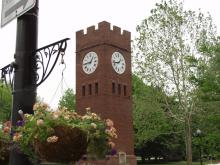Crazy Talk on Fiber Deployments - Episode 529 of the Community Broadband Bits Podcast

This week on the podcast, ILSR Senior Reporter and Editor Sean Gonsalves joins the show for another installment of Crazy Talk. Today's topic is fiber, with the two breaking down a recent op-ed in The Hill by Technology Policy Institute President Scott Wallsten. Christopher and Sean inject a much-needed reality check, as well as some nuance, to Wallsten's performative anxiety that public broadband subsidies supporting fiber optic deployments will leave rural America behind.
They talk about the broken history of regulation and accountability that "technology neutral" arguments like Wallsten's harmfully perpetuates, when fixed wireless networks do make sense to support, and the often-underappreciated work being done by local governments across the country to maintain fiber infrastructure that they've been using to serve their communities well for decades.
This show is 35 minutes long and can be played on this page or via Apple Podcasts or the tool of your choice using this feed.
Transcript below.
We want your feedback and suggestions for the show-please e-mail us or leave a comment below.
Listen to other episodes here or view all episodes in our index. See other podcasts from the Institute for Local Self-Reliance here.
Thanks to Arne Huseby for the music. The song is Warm Duck Shuffle and is licensed under a Creative Commons Attribution (3.0) license.


